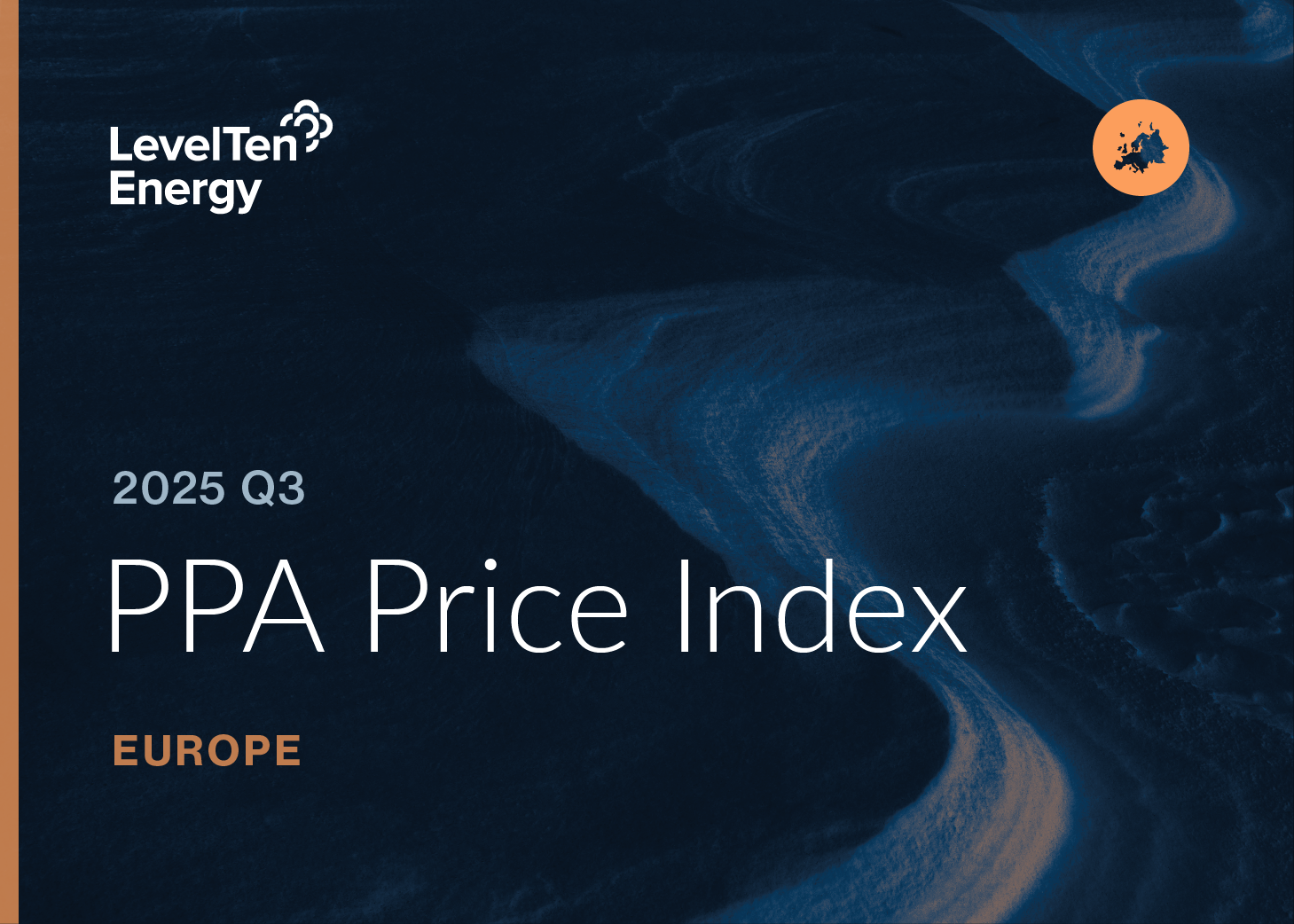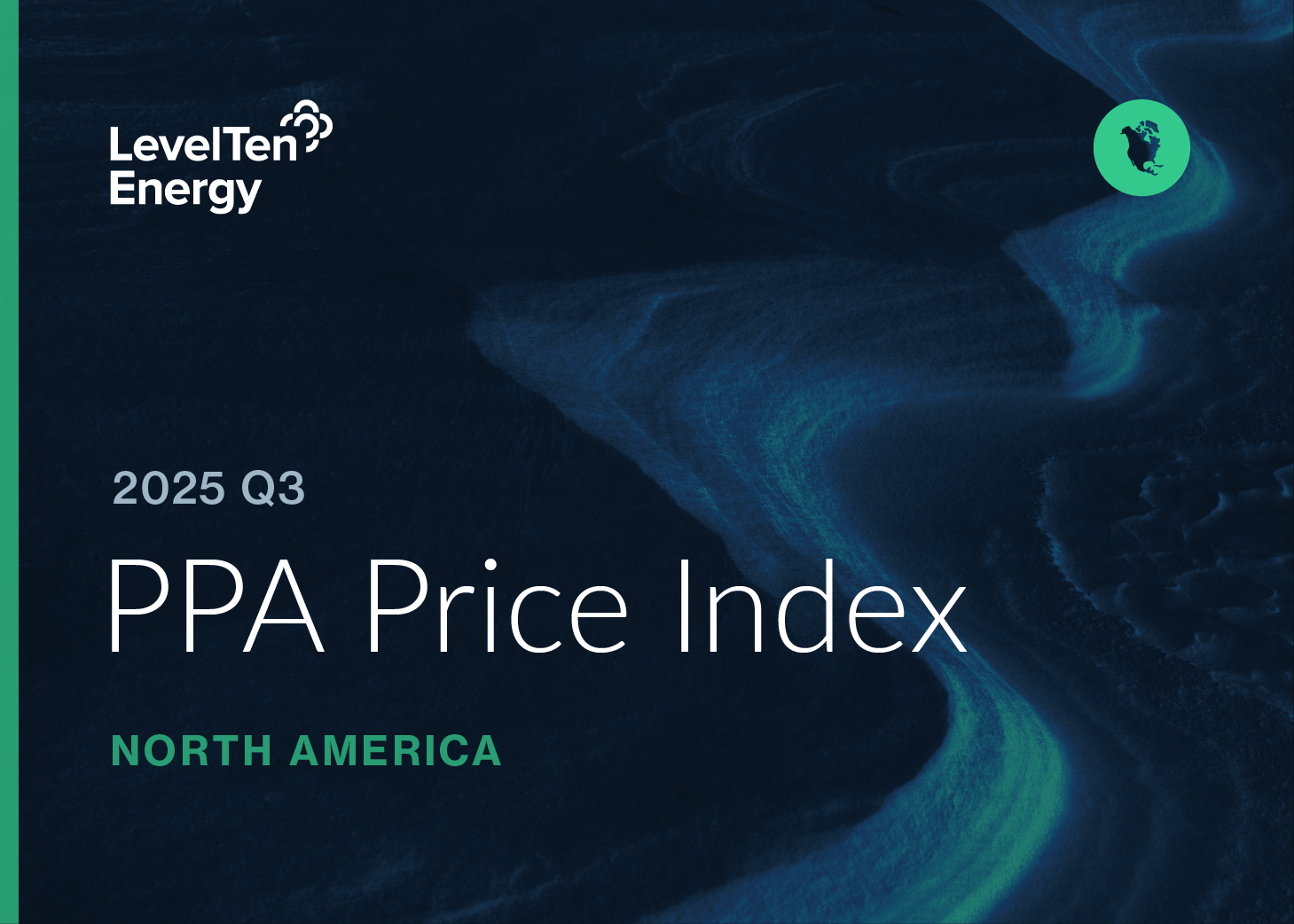Today LevelTen Energy announced its RE-Store™ Energy Agreement, an innovative financial contract that enables corporations and Load-Serving Entities (LSEs) easier access to the economic and risk-reducing benefits of energy storage projects. The agreement, developed in collaboration with EnergyGPS, opens the door to billions of dollars of investment in large-scale energy storage projects by providing buyers a practical way to contract with storage developers, and by guaranteeing a revenue stream to developers to support project financing.
Last week LevelTen announced that it facilitated an agreement of this kind for Starbucks, which, once online in 2021, will provide renewable energy for more than 550 stores in California with solar energy and utility-scale batteries. LevelTen’s RE-Store™ Energy Agreement is an important industry breakthrough because storage, at scale, is key to enabling the transition to a grid powered by 100% renewable energy.
The agreement was designed with the flexibility to complement a renewable energy power purchase agreement (PPA), whether existing or planned, or to be executed independent of any particular energy generation project or PPA. Either use case dramatically simplifies the storage procurement process and increases buyers’ options by orders of magnitude.
LevelTen’s RE-Store™ Energy Agreement, which is now available through LevelTen and our partners, delivers benefits to buyers, developers, and the world at large:
1) Buyers can improve the economics of their renewable energy portfolio while taking no operational risk
LevelTen’s RE-Store™ Energy Agreement delivers three main benefits to buyers:
- Reduced Portfolio Volatility: Because the economic value of storage is often inversely related to that of a renewable energy PPA (i.e., it has a tendency to perform well—or generate a positive cash flow—when a PPA contract does not, and vice versa), LevelTen’s RE-Store™ Energy Agreement can serve as a hedge, complementing existing renewable energy contracts and reducing the cash flow volatility of a buyer’s energy portfolio. The agreement is particularly effective in markets with high (or rapidly increasing) renewable energy penetration.
- No Operational Risk: With a RE-Store™ Energy Agreement, the developer receives a guaranteed, fixed revenue stream and, in exchange, pays the buyer the difference in value between the highest and lowest hourly prices that occur in the wholesale energy market each day. But because the agreement is a purely financial contract, buyers don’t take on the technology risk or operational responsibilities of a more conventional storage procurement. Instead, buyers receive payments based on how an optimized storage project should have performed, not based on actual performance, while also avoiding accounting triggers.
- Flexible Locations: Because the RE-Store™ Energy Agreement is settled financially, not physically, the storage project doesn’t need to be co-located with an energy generation project. The structure allows buyers to select storage projects with the best economics, rather than simply accept the storage project that happens to be co-located with their renewable energy project.
More details on the agreement are available for buyers working with LevelTen or our advisor partners; contact us to learn more.
2) Utility-scale storage developers have a new source of revenue
Just as virtual PPAs ushered in a wave of corporate investment in wind, solar and other renewable projects, LevelTen’s RE-Store™ Energy Agreement is poised to catalyze investment in utility-scale storage projects.
Though the cost of utility-scale storage has plummeted in recent years, and many utilities and LSEs are investing in storage to support their operations, the industry has thus far lacked the transaction infrastructure to deliver reliable value streams to both storage buyers and storage owners. The RE-Store™ Energy Agreement closes this gap. By delivering a guaranteed revenue stream to developers, it improves the “financeability” of storage projects.
Furthermore, as a financially-settled contract, the agreement affords storage owners full operational control, allowing projects to optimize all asset revenues (through capacity and ancillary services sales, for instance). With an increasing number of merchant storage projects seeking contracted revenues to complement their exposure to wholesale market volatility, LevelTen’s RE-Store™ Energy Agreement will break down a key barrier to project development.
3) Grid operators can use clean energy longer, reducing the need for fossil fuel generators
More storage projects on the grid means renewable energy can be deployed when the sun isn’t shining or wind isn’t blowing, which is key to accelerating the clean energy transition. And, since storage projects can sell clean energy when fossil fuel generators are currently required, storage expansion will reduce brown power needs, resulting in fewer greenhouse gas emissions for the planet.
Want to learn more?
Storage developers that are interested in participating in the LevelTen Marketplace should contact developerservices@leveltenenergy.com for details. Any corporations or load-serving entities interested in using LevelTen’s RE-Store™ Energy Agreement should contact us.


.png)



